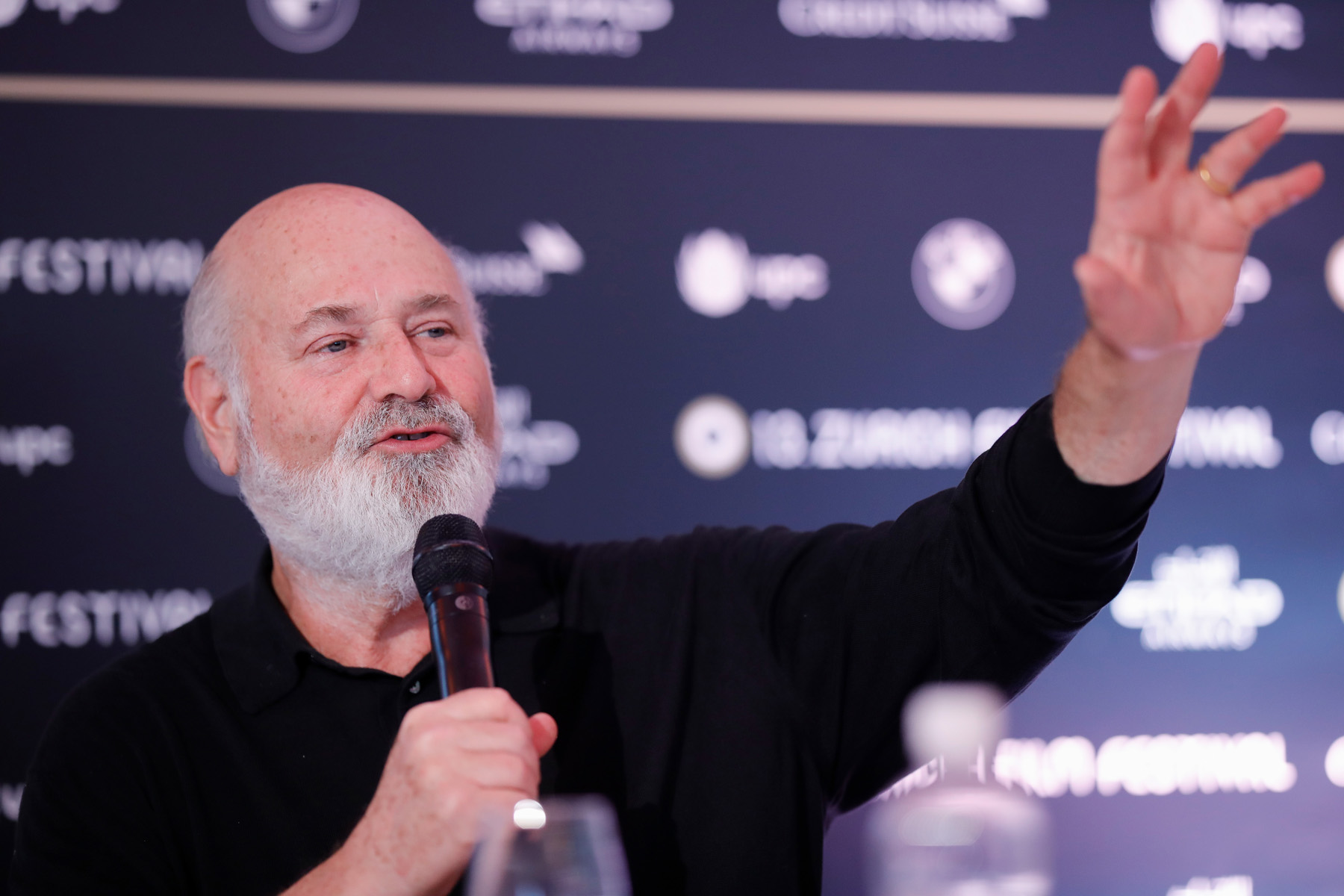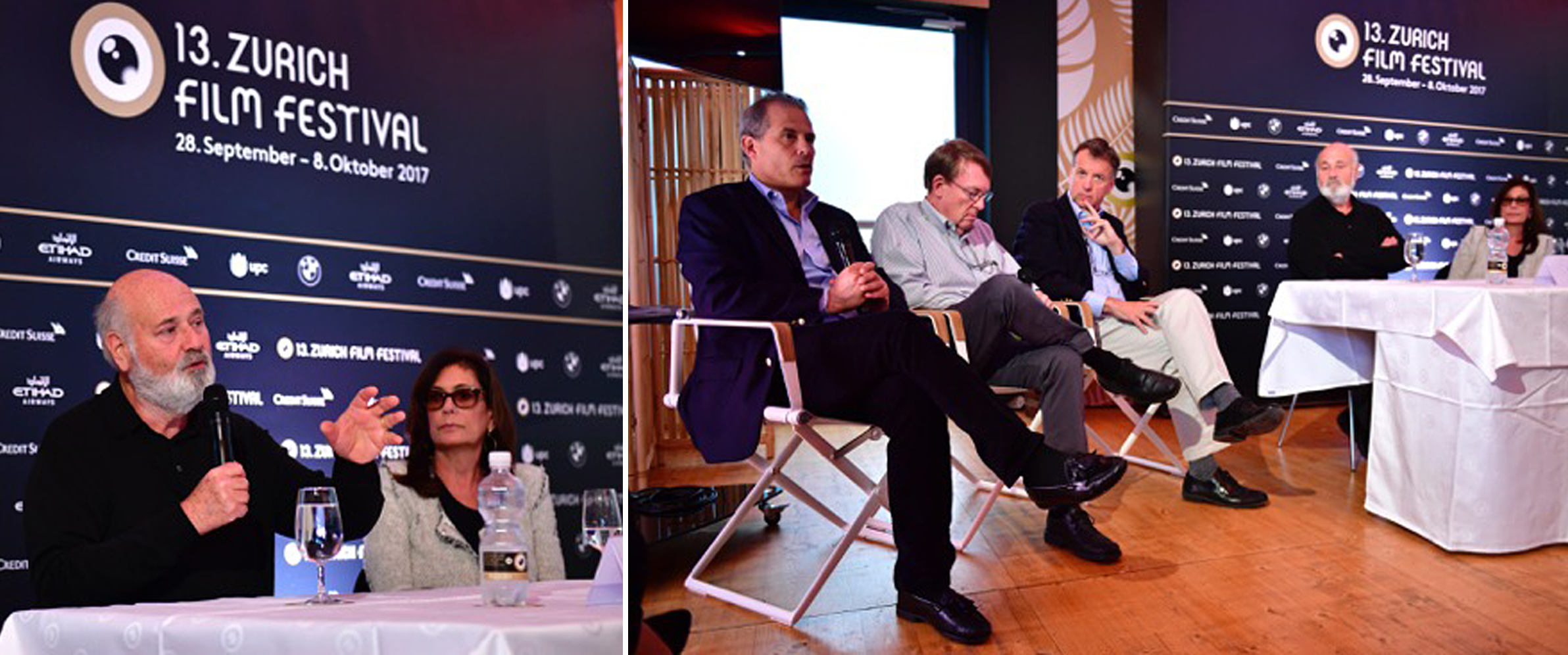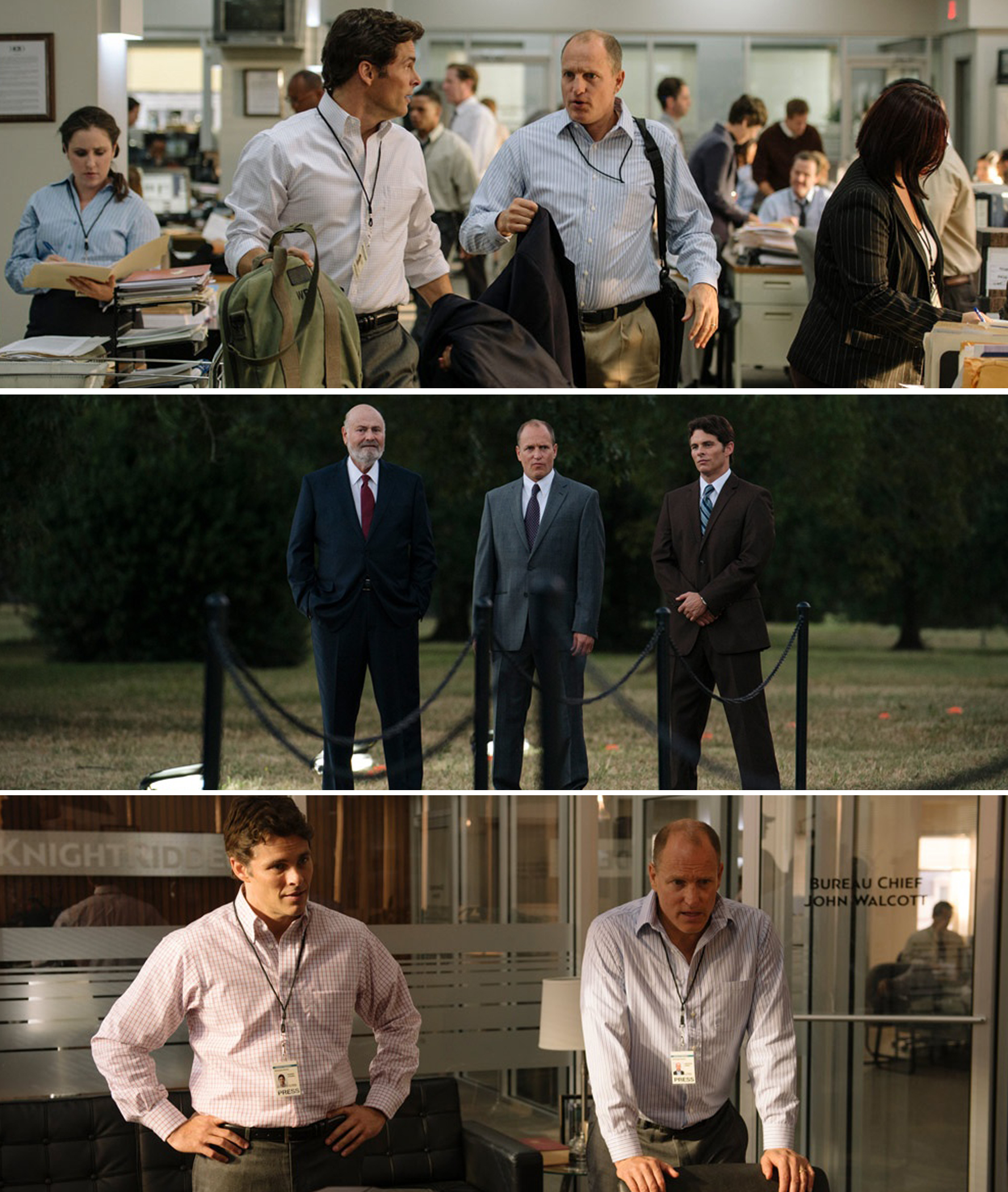
- Festivals
Rob Reiner brings ‘Shock and Awe’ to Zürich Festival, Awards Announced
Director Rob Reiner held a masterclass at the 13th Zurich Film Festival and told the audience that he held the world premiere of his latest film Shock and Awe in Switzerland because Europe ‘still hangs on to the free press’. Shock and Awe follows four journalists who pursued the real “weapons of mass destruction” story behind the run-up to the invasion of Iraq in 2003 for the news agency Knight Ridder.

Why did you want to make a film about the run-up to the Iraq War?
I never thought I would see America go to war based on lies twice in my lifetime. The war in Iraq was the greatest single foreign policy debacle in American history – in my view way beyond what happened in Vietnam. That was the reason I wanted to make the film. My wife Michele and I were against the war. We participated in peace marches. But it was like seeing your child run into the street, having no capacity to save their life and just watch them get hit by a truck.
The same goes for the journalists of the Knight Ridder news service portrayed in Shock and Awe: The reporting of Jonathan Landay (Woody Harrelson), Warren Strobel (James Marsden), Joe Galloway (Tommy Lee Jones) and John Walcott who you play yourself, was ignored by the mainstream media and most everybody else…
True, they couldn’t break through. If the truth had broken through we might have had a chance to stop that war. John Walcott, who is now at Reuters, gave a speech to all working at Knight Ridder saying: “When the government says something, there is only one question you have to ask. Is it true? These guys dug and they did find the truth and nobody would listen. There are many reasons why: The shock of 9/11; the neocons who wanted to build a western style democracy in the Middle East thinking it would spread – I asked the journalists many times, if there wasn’t anybody in the administration that understood that they would open up a 1,400 year Sunni-Shia sectarian divide and they said: ‘You would be surprised. They are not that smart.’ And that was astounding to me. And now we have the most ignorant person in the White House; he doesn’t understand anything about anything. There is a danger for something really horrendous to happen.”
Do you feel the events of 2003 are relevant today?
Yes, now more than ever we are facing this onslaught of fake news, we are hearing it pushed out not only by the President but also by foreign sources. We know now that the Russians spent a lot of time on Facebook and Twitter to push out false news stories in the last election. So it becomes even more difficult for real journalists and honest journalism to break through. The only way we can have a healthy democracy is if we have an informed public. And that’s why we made the film: as a cautionary tale. If we are not vigilant and support the idea of honesty and truth in journalism, we don’t have much of a chance to have a healthy democracy.
What would you like the media to do differently to keep the truth out there?
That is the ultimate question. We are inundated with tons of garbage and it’s done to sow confusion and division and conflict among ourselves. That’s what Putin tried to do. We need help from the tech companies, from Facebook’s Zuckerberg and from Twitter to target fake news. When the Internet first started they called it “the information superhighway” and they said: “look at all this information suddenly available!” When I grew up we had just the three networks as sources of news and it was a big deal when they expanded the program to 30 minutes, but it was a public service. Since the arrival of the Internet, we became less informed, not more informed. The newspapers are being wiped out; we have to find new ways. I don’t blame Kim Kardashian specifically, but the whole reality genre. It’s not reality it is just entertainment in a different form. And it gave birth to a guy who ran for President. It’s a very scary thing. We need to come together and create an atmosphere where real news can come out. That will be an enormous task. And it won’t happen as long as Trump is there.

The 13th Zurich Film Festival closed with a special screening of An Inconvenient Sequel: Truth to Power and a talk with former Vice President Al Gore.
On Saturday Golden Eye Awards were handed out in three competition categories. The winners were:
POP AYE by Kirsten Tan from Singapore (International Feature Film),
MACHINES by Rahul Jain from India, Germany, and Finland (International Documentary Film)
BLUE MY MIND by Lisa Brühlmann from Switzerland (Focus: Switzerland, Germany, Austria).
The awards in the two international competition categories are each endowed with a CHF 25’000 cash prize; the award in the Focus: Switzerland, Germany, Austria category is endowed with a CHF 20’000 cash prize.
Among the other winners are:
The Emerging Swiss Talent Award: AVANT LA FIN DE L’ÉTÉ / BEFORE SUMMER ENDS by Maryam Goormaghtigh (Switzerland)
Critics’ Choice Award for Best Debut Feature Film in the Competition Section:
BLUE MY MIND by Lisa Brühlmann (Switzerland).
Audience Award (given to the best film from the three competition categories): A RIVER BELOW by Mark Grieco (Colombia, USA)
Kids Jury Award for Best Children’s Film: UPP I DET BLÅ / UP IN THE SKY by Petter Lennstrand (Sweden)

